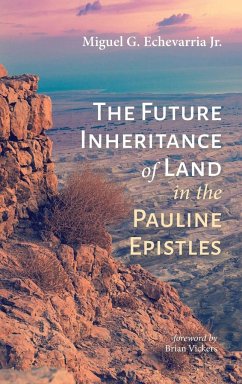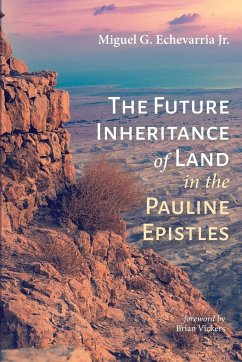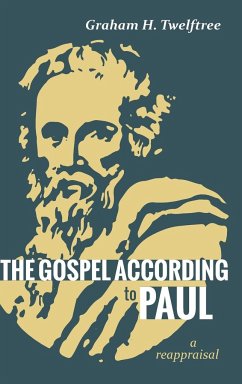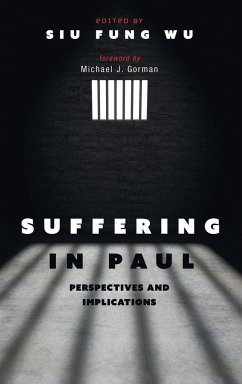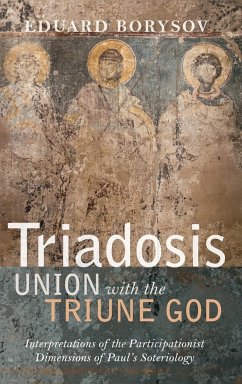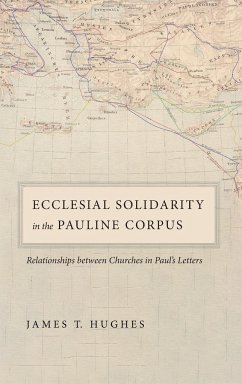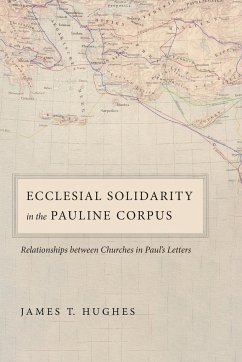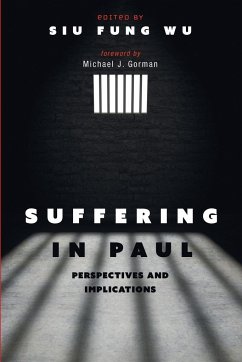The Apostle Paul's vision of eternity is centered on the inheritance theme. Although Paul rarely unpacks this concept, he employs the inheritance in a manner that encompasses the hope of a renewed cosmos promised to Abraham and his descendants. Thus, the apostle does not redefine a theme grounded in the Old Testament and Second Temple literature--as if it now referred to heaven or some other spiritualized existence. He expects what every pious Jew expected--the tangible fulfillment of the promise, when at last God's people will dwell in a land where they will experience rest under the rule of Messiah. What Paul clarifies is that those who are ""in Christ"" are the beneficiaries of the inheritance. Although believers do not currently possess what has been promised to them, they have the hope that the Spirit will lead them on a new exodus through the wilderness of the present sinful age until they inherit the coming world. ""The promise of the land looms large in the OT, but interpreters sometimes wonder what happens to this promise as they enter the NT. Their argument is that Paul expands the promise to include the entire new world . . . Those who have struggled to understand how this theme traces through Jewish thought now have a new place to start."" --Patrick Schreiner, Assistant Professor of New Testament Language and Literature, Western Seminary ""Employing both typology and intertextuality, Echevarria demonstrates that the OT inheritance promise to Abraham and his descendants, though fulfilled in Christ, is still a future reality. This promise should not be spiritualized so that it refers to some ethereal existence in heaven. Instead, Paul's view of inheritance, based on the OT, has expanded to include the cosmos--a physical existence that still awaits believers, though it is guaranteed by the presence of the Spirit. Thus, Echevarria gives the necessary attention to the important theme of inheritance and cogently and persuasively argues that such an inheritance will be a tangible reality when believers are resurrected to enjoy the new creation."" --Benjamin L. Merkle, Professor of New Testament and Greek, Southeastern Baptist Theological Seminary ""Negotiating his way through a welter of contemporary eschatological confusions, in The Future Inheritance of Land in the Pauline Epistles Miguel Echevarria argues persuasively that Paul does not spiritualize the promise of an inheritance from the OT, but instead sees it fulfilled in the new creation in which God's people will dwell. Exemplifying biblical fidelity, cogent argumentation, and lucid communication, this is biblical scholarship at its best. Highly recommended."" --Bruce Ashford, author, Letters to an American Christian Miguel G. Echevarria Jr. is Assistant Professor of New Testament and Greek and Director of Hispanic Leadership Development at Southeastern Baptist Theological Seminary, Wake Forest, North Carolina.
Hinweis: Dieser Artikel kann nur an eine deutsche Lieferadresse ausgeliefert werden.
Hinweis: Dieser Artikel kann nur an eine deutsche Lieferadresse ausgeliefert werden.

